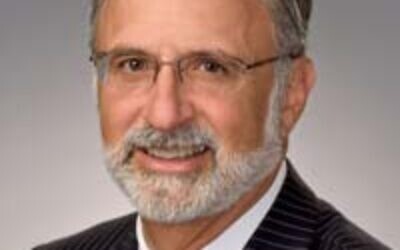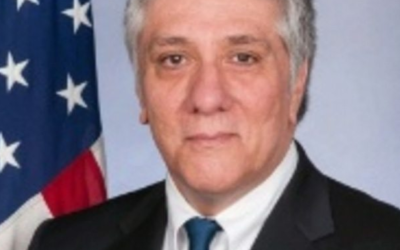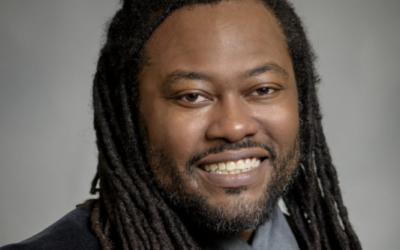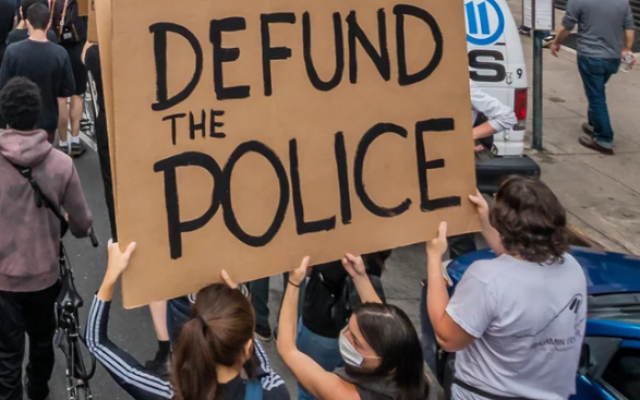Defunding the Police Is Topic of World Affairs Council
A top-ranking police officer and a U.S. diplomat weigh in on solutions, including ‘rebooting of the police’.
During a week of protest, marches and demonstrations against police misconduct, the World Affairs Council of Atlanta explored how law enforcement and policing might be reformed.

Leading the online discussion entitled “Defunding Police: Political Mistake?” was Charles Shapiro, president of the World Affairs Council of Georgia State University and a former American career diplomat. He completed his career as the U.S. Ambassador to Venezuela.
Shapiro discussed the issue of policing in America with Luis Moreno, also a veteran U.S. diplomat. During much of his 34 years of service Moreno worked at retraining and reorganizing police forces in the Caribbean and Latin America. Moreno, who retired as U.S. ambassador to Jamaica in 2017, believes there’s no way to minimize the seriousness of the problem.
“I think that it’s obvious from the recent events how endemic police brutality can be, how there are injustices, how there’s a systematic problem that has to be addressed. If I was a foreign diplomat stationed in the U.S., I’d say that the U.S. police departments have a pattern of discriminatory human rights abuses.”

The discussion Thursday, June 11, preceded the signing by President Donald Trump of an executive order this week, on Tuesday, June 16, aimed at partially reforming law enforcement in America.
The executive order would help to strengthen a national database of police officers who were accused of misconduct. It would also provide new financial incentives at the federal level for additional training for police in the use of force.

Part of the problem, according to Moreno, who, as an American diplomat led the $1.3 billion U.S. campaign against the Colombian drug cartel, is that American law enforcement has no national structure and no national standards. Although there have been frequent calls to decimate police forces and eliminate funding, the effort, he believes, would end in chaos.
“We have 18,000 different police forces, a hodgepodge of metropolitan police, county police, sheriffs, constables, state police. And that makes it very, very difficult. You can’t defund the police because you would have 18,000 different defundings. You need a rebooting of the police, a restarting of the police.”
When asked about the president’s action in a follow up interview, Moreno said it was a start, but much more needs to be done. Something is needed, he said “like the Marshall Plan that put Europe back on its feet after World War II, but for law enforcement.”
“I think we really need national reform. I think we need sweeping legislation. I think we need to be really serious about this. An executive order touched on some things that needed to be done. But I think you’re going to need a lot more than executive orders.”
Also discussing the issue with Shapiro, was Thaddeus Johnson, an African American and for 11 years a ranking member of the Memphis Police Department.

He is now a doctoral candidate in criminology at GSU. Johnson believes that the complete defunding of police departments is a non-starter, but that law enforcement must make a much greater effort to be a part of the community and that may mean redistributing part of the funding that goes to law enforcement to be directed to social service programs that more directly serve the community.
“We need to get back to the idea of the police officer as part of the community. Police officers are our neighbors. They’re our fathers, our sisters, our brothers, our mothers, they’re part of the community.”
In an interview following the president’s executive order, Johnson emphasized the need to evaluate and reward police offices more than just on the basis of how many they arrest.
“If you don’t change the reward structures, if you don’t change the purpose and philosophy behind policing, then the president’s executive order is really just a signature on a piece of paper.”
Ambassador Moreno, who also served as deputy chief of mission at the U.S. Embassy in Israel from 2007 to 2010, believes that America has a lot to learn from the experience of the Israelis, which is a national force under the control of the Ministry of Public Security.
Although he doesn’t favor a national police force in this country, he does admire the coordinated law enforcement response, the national training standards and the professional discipline that the Israeli system offers.
“I know, when you have existential issue like you do in Israel, the cooperation between the national police, the Shin Bet, which is the internal security service, the border police and the Israel Defense Forces, is really something to behold. It’s really impressive.”




comments